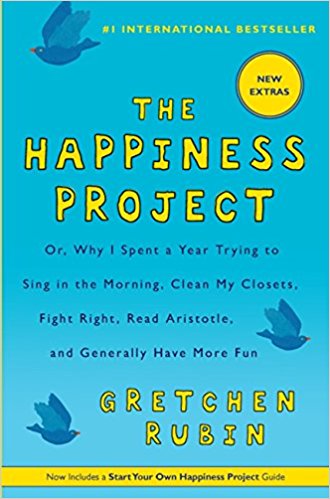

1. Mood charting. I’m sure there’s an app for this, but I do best with pen on paper, so here’s a handy chart you can print out. This particular one includes categories for depression, anxiety, irritability, sleep duration, weight and medication. I alter mine to include whether or not I’ve had a nap (see #5), and specifically how much trouble I’ve had being patient with the kids. I found it very helpful to have the different categories separated, rather then under one big “was I depressed today” box to check. When I differentiated between anxiety and depression, I discovered that anxiety was a bigger problem than I thought, and began working on that. Another chart to help you identify trends in your routine: The Well Mom Checklist asks some basic questions to help you take control of your day, like “have I eaten nutritious food today? Have I let others help me today?” It’s aimed at postpartum moms, but you can easily alter it to fit your situation.
2. Self-esteem exercises. I know, it sounds awful. But it works. I’ve written about these before, but it bears repeating: you believe it more if you say it in so many words, especially out loud. I’m also supposed to be starting each morning by saying “yippee! Another day with Rosie!” but I confess that I haven’t worked my way up to that yet.

It helps when you have a nice brother who adds his own note at the bottom.
3. Make a list of everything you accomplished today–and don’t forget the little details! For example, don’t just write “took care of the kids;” write “fed the kids breakfast, changed their clothes, read books to them, brought M. to school, made sure he had his backpack and lunch, put the baby down for a nap, washed her face, said night prayers with them.” This is a really wonderful exercise to do at the end of a long day when you feel like you’ve accomplished nothing.

4. Make a little list of small tasks you can do in your spare minutes throughout the day, to give you little boosts of satisfaction in your accomplishments. With 3 small kids, I found that my free time comes in 5-minute portions, which I generally spent (a) wasting on Facebook, (b) running around thinking “what should I do? Should I cook? Should I pray? Should I clean? Should I nap?” until the kids demanded my attention, or (c) starting some big project, and then inevitably being frustrated when I had to stop it two minutes later to take care of the kids. My therapist suggested a way to make the best of these moments without stressing out:
- Do something small, something you know you can get done in a few minutes, so you can feel like you accomplished something. Make a phone call, sort the socks, take the meat out of the freezer, answer a quick email, hang up all the jackets, etc.
- Do something big, but start out with the understanding that you’ll do it one step at a time, so you won’t get frustrated when the interruptions start.. First I’ll take out my dinner recipe. Next time I have five minutes, I’ll get the ingredients out. Next time, I’ll chop the vegetables. Next time, I’ll grate the cheese….
- Just sit and be present. Give yourself permission to rest for a couple of minutes, and focus your mind on the information your senses present to you, without judgement or analysis. This takes a little practice, but it works.
5. Naps. At various times in my life, a daily nap has been a necessity, not a luxury. I sleep for about two hours every day while the baby and the 3-year-old nap, and guess what? I don’t feel guilty about it! I used to, but that was before I started paying attention and noticing that every day I didn’t take a nap was a day I was cranky, mean, weepy, and depressed to the point of despair by the end of the day. When I started thinking of a nap as a mental health necessity, it became easier to make it part of my daily routine. Now I take a nap even when I don’t feel particularly tired, or when there’s something else I’d rather be doing, because I know it’s not being lazy, it’s essential self-care.
6. Bare Minimum Mode. I got this idea from the wonderful Jennifer Fulwiler. The idea is that you’re not just sliding into chaos, but purposefully choosing to cut out some non-essentials during certain seasons of your life. As Jen says,
I found it helpful to articulate those activities that were just too much for me right now, cut them out, and embrace that as a proactive strategy, rather than walking around feeling stressed about what wasn’t getting done.
Here’s a post she did with some more details. My version of Bare Minimum Mode includes using paper plates and plastic cups, and not worrying too much about having three, distinct balanced meals–as long as we’ve eaten something healthy today, and no one’s hungry, we’ll call it good.
7. A nightly routine. Every night for the last week, as soon as the kids are in bed, I go through this routine:
- chart my mood for the day
- check the “Well Mom Checklist”
- take five minutes for quiet mindfulness/being present
This has surprised me in two ways: (1) it feels wonderful and really helps me relax, and yet (2) each successive day it becomes harder to do. So many excuses!
Bonus: don’t skip your nightly routine in favor of staying up past midnight to argue about gay marriage on Facebook. That would be bad.
Please see Kelly at http://www.thisaintthelyceum.org for the rest of the Seven Quick Takes! I missed you, and I’m going to do my best to begin blogging regularly again.









